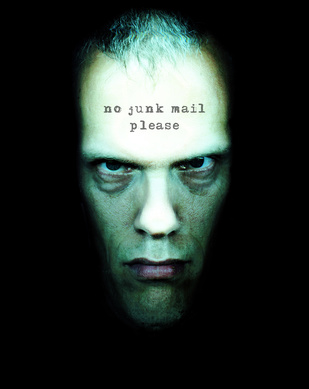Equity happens…but sometimes other “stuff” happens on the road to real estate riches.
Fortunately, we can (and should) learn from bad experiences. Even better, we can learn from OTHER people’s bad experiences. And that’s why we broadcast Halloween Horror Stories every year!
- Visit our Special Reports library.
- Don’t miss an episode of The Real Estate Guys™ radio show. Subscribe to the free podcast!
- Stay connected with The Real Estate Guys™ on Facebook!
The Real Estate Guys™ radio show and podcast provides real estate investing news, education, training and resources that help real estate investors succeed.
Halloween Horror Stories – Lessons Learned When Things Go Bad
Problems are a normal part of life. And sometimes the harder you push yourself to succeed, the more problems you experience.
So if you’re experiencing something less than smooth sailing in your real estate investing career, don’t be dismayed. As you’re about to discover, you’re in good company.
In the conversation crypt for this episode of The Real Estate Guys™ Halloween Horror Stories:
- Your horribly talented host, Robert Helms
- His cryptic co-host, Russell Gray
- The Real Asset Investor, Dave Zook
- Global Diversified Partners founder, Danny Kalenov
- Real estate investor and loyal listener, Casey Thom
- Real estate investor and loyal listener, Nick Jensen
- Attorney and regular contributor, Mauricio Rauld
- Real estate developer and regular contributor, Beth Clifford
What Lurks Beneath…
 In this segment, Dave Zook recounts a crappy experience he had when a guy fell into a sewer on one of his properties.
In this segment, Dave Zook recounts a crappy experience he had when a guy fell into a sewer on one of his properties.
Dave found out that while it can SEEM like a nice benefit to not have to pay for certain municipal services…like city sewer…it also means you have FULL responsibility for maintaining them. Or cleaning up when something messy happens.
So even though you may not have a choice on any given property, it’s important to set up your budget and reserve contingencies to account for the responsibility.
It’s also a good idea to make sure your insurance policies actually cover ALL the risks you’re exposed to.
Deep Into the Red…
Danny Kalenov goes back in time to one of his very first real estate investing decisions.
Danny was living and working in Southern California at the time. And he just couldn’t find affordable investment properties where the numbers made sense.
So, he and his wife jumped on a plane, flew to Texas, found a local broker and bought two “great deals”.
Then he perused the local ads, found a property manager, signed the papers, turned over the keys and flew back to California.
That was easy.
Not.
Turns out the properties got rented out to a demographic…call them “college students”….who didn’t take good care of the property. In fact, they trashed it.
 And without a clear personal investment philosophy and solid local team to help guide the initial investment decisions…and now the corrective decisions…Danny opted for the better part of valor and dumped the properties at a loss.
And without a clear personal investment philosophy and solid local team to help guide the initial investment decisions…and now the corrective decisions…Danny opted for the better part of valor and dumped the properties at a loss.
But it wasn’t a complete loss. And that’s because he ended up listening to The Real Estate Guys™ radio show…and he learned a better way to approach the challenge of out of area investing.
First, start with your personal investment philosophy. Understand WHY you want to invest and WHAT you are willing to do (or not do).
Then think about HOW you need your investment to perform.
Then pick a market WHERE the kinds of properties, economic factors and demographics exist that are most likely to produce the financial result you’re after.
Next, decide WHO you need on your local team and invest time to build a good working relationship. What do they need to be successful? How can you help each other?
Have your team help you learn the sub-markets better and then to pick out a property which is most likely to do what you want it to do.
Of course, if your team (led by your property manager) has input on the property, you’re more likely to get one that will do better.
The bottom line is: spend at least as much time getting good at researching and interviewing team members as you do running around looking at “deals”.
Fire Sale Fourplex…
Sometimes when you’re looking for affordable properties with good cash flows, you’ll find yourself in rougher areas.
In this segment, Casey Thom tells us about a four-plex he bought…right next to a crack house.
Fortunately (just kidding) the crack house burned down. But unfortunately, the fire jumped to Casey’s property and destroyed it as well.
The owner of the crack house didn’t carry insurance…or enough of it. So that property didn’t get repaired.
Casey was smart enough to have insurance, including the VERY important “Loss of Income” rider, which pays the scheduled rent to the owner (you!) even though your property is empty while being repaired.
Lots of first time landlords don’t even know to ask for the Loss of Income rider. So while the property gets repaired, the owner has to come out of pocket to pay the mortgage payment and expenses. That’s bad.
Lesson: Be sure to work closely with an EXPERIENCED rental property insurance agent to be sure you’re covered for the real world risks you’re facing.
The Incredible Shrinking Lot…
Investor Nick Jensen thought he’d executed the perfect pizza strategy. That’s the one where you buy a whole pizza and then sell individual slices for a profit. Then you end up with either a cash profit, equity in any remaining “slices”, or some combination thereof.
 In this case, Nick bought approximately (key word…”approximately”) 3 acres with a trailer home on it. As you might imagine, it was the land which was interesting. The trailer home just happened to be there.
In this case, Nick bought approximately (key word…”approximately”) 3 acres with a trailer home on it. As you might imagine, it was the land which was interesting. The trailer home just happened to be there.
So Nick decided to sell off 2 acres to a new buyer. Nick planned to use the proceeds to get rid of the trailer home and build something better.
BUT…what Nick didn’t do was make SURE he ended up with at LEAST one FULL acre.
Because as it turns out, the local zoning ordinances only permit a new building on a MINIMUM one acre lot. Oops.
And as you might imagine, the potential to buy back a sliver of land from one of the other two one acre buyers is slim.
So now, Nick has a slightly less than one acre property, with slightly less than desirable trailer home on it, and…a very valuable lesson.
Note to self: Don’t ever ASSUME anything that’s important…like the ability to build a home on lot…or the size of the remaining lot…without VERIFYING the facts FIRST.
Mystery Mailbox Mayhem…
As long time listeners will know, way back in 2012 when the JOBS Act was passed, attorney Mauricio Rauld pointed out a small provision in the bill that had HUGE potential.
In short, Congress was lowering the barriers between Main Street money and Main Street opportunity by allowing purveyors of non-public (private) offerings to advertise directly to the general public.
Until then, the public was only being offered publicly registered securities. Private deals were all reserved for insiders, friends and family. In fact, the prior law said that anyone offering a private deal to someone had to have a PRE-EXISTING relationship.
Later, (and it seemed like MUCH later) in September 2013, the Securities and Exchange Commission (SEC) finally released the first phase of regulations. But they only allowed advertising for private placements to be directed at accredited investors. So the little investors are still locked out.
We put together a free report on this topic, which is available here.
(UPDATE: On October 31, 2015 the Wall Street Journal reported that the SEC released updated regulations permitting promotion to NON-ACCREDITED investors. This is GOOD news for anyone wanting to raise money to do bigger deals…and for all the little investors who’d like to get in on bigger deals).
Meanwhile, Mauricio had a client who got excited about using the freedom under the new law to promote for investors.
So she a organized a presentation and bought a list of accredited investors to send invitations to.
Apparently, one of the recipients didn’t like the invite. So rather than simply throw it in the trash and ignore it…or contact Mauricio’s client and asked to be removed from the list…this person decided to contact the state security regulator and file a complaint.
Nice.
And then the regulator decides to go “under cover”, poses as a prospective investor and requests information about the investment offering.
Now you may not know (which is why we have Mauricio on our faculty for our Secrets of Successful Syndication seminar)…but when you put together an offering that is claiming an exemption from public registration, you need to make a filing with the state regulator.
But you aren’t required to do it before you make the offering. It just needs to be done within 15 days of accepting your first investor.
(Note: We’re not attorneys. This is just a blog about a radio show. So before you actually do anything, we STRONGLY recommend you work with your own attorney to be clear about the regulations surrounding your particular situation).
In this case, Mauricio’s client hadn’t filed yet. So when the regulator checked, they was no filing. Keep in mind, there was no legal requirement to have filed at this point. So Mauricio’s client had done nothing wrong.
But that didn’t matter to the regulator. And rather than simply pick up the phone and ask whether any investments had been accepted (they hadn’t), the regulator simply fired off a “Cease and Desist” order and freaked out this poor entrepreneur.
The good news is the offering was compliant and it all went away with a few responses by counsel.
The lesson? It’s probably safer to simply file your exemption BEFORE you do any public promotion. Because you never know who will be looking at your offering…or how they will react.
Out of Control…
Real estate developer Beth Clifford was working on an in-fill project in Washington DC.
The project itself was a very unique product and Beth thought she could get a higher price if prospective buyers actually saw the finished product…instead of buying from an artist’s rendition.
So rather than generate cash flow from pre-sales, Beth took advantage of cheap debt, and borrowed money to fund current cash needs. After all, the math said the premium of selling a tangible finished product was cheaper than the interest on the loan.
Of course, when debt is involved, it’s really important to hit time lines…because the loan payment creates a drain on available cash.
So the project is cruising along, the structure is completed and nearly ready to be furnished, and everything’s looking good, until…
An arsonist decides it would be a good idea to break into the property and set it on fire.
 As you might guess, this introduced some delays and cash flow problems into the plan. Yikes!
As you might guess, this introduced some delays and cash flow problems into the plan. Yikes!
Fortunately, Beth’s insurance company stepped up big and quickly got the rebuild funded.
Meanwhile, Beth decided to turn the situation into a public relations opportunity. So she organized a barbecue fund raiser to honor all the fire and police who helped her. She invited all the local people, who then saw her project and her concern for the community.
Sometimes there are things you just can’t control.
But by having contingency funds in your budget, good quality insurance that will actually pay instead of fight with you, and a creative mind which allows you to see how to take something negative you can’t control, you can turn a bad situation into something positive.
Do YOU have a Halloween Horror Story? Let us know!
Listen now:
Click here to go to our Feedback page. Tell us what happened, how it turned out and what you learned. Who knows? Maybe YOU will end up featured on a future edition of Halloween Horror Stories!













